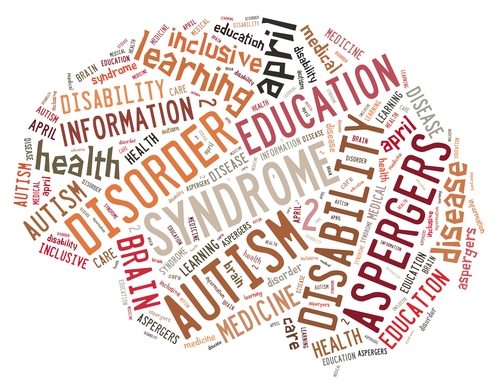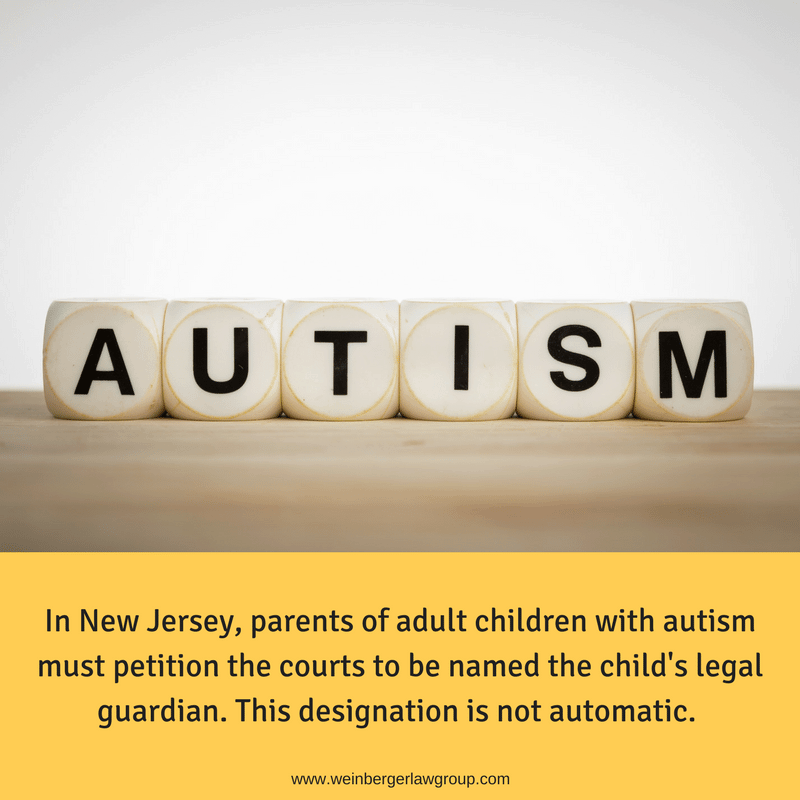Becoming A Legal Guardian To Your Adult Child With Autism
 When children with autism grow up and become adults, how do their rights and access to services change? In honor of April’s Autism Awareness Month and World Autism Day, let’s a take a look at what happens legally when a child with autism reached the milestone of adulthood, and how parents can prepare.
When children with autism grow up and become adults, how do their rights and access to services change? In honor of April’s Autism Awareness Month and World Autism Day, let’s a take a look at what happens legally when a child with autism reached the milestone of adulthood, and how parents can prepare.
In New Jersey, once a child turns age eighteen, he or she is considered a legal adult, free to make their own decisions and permitted to make their own life choices. But, this isn’t always so cut and dried for a child who has been diagnosed with Autism Spectrum Disorder, depending on where on the spectrum they are.
Perhaps that child cannot appropriately express themselves or understand day-to-day activities that come with living completely independently. Perhaps they may not be able to hold down a full-time job. In these types of situations, families of the child with Autism can seek to become the legal guardian to that child who is now over the age of eighteen.
In order to become a legal guardian, you must ask the court for permission to be designated as such. Many parents of teens with autism are surprised to learn that they are not automatically considered their child’s legal guardian simply because the child has a disability. According to an article on Foxnews.com, one New Jersey mother of an 18-year-old with autism simply could not believe how difficult the process had become. She stated, “I spent a lot of time on the phone, gathering and copying paperwork and talking to my lawyer and my son’s court-appointed lawyer. It was my part time job.”
The process can be overwhelming and murky. It is strongly advised that parents seeking to become the legal guardian to a disabled child seek the advice and services of an experienced and qualified attorney who is familiar with the law surrounding children with disabilities and guardianships here in New Jersey.
After your initial application is filed with the court, a psychological evaluation of your child is conducted. Also, the judge will assign a representative from the Department of the Public Advocate to represent your child in the case. If the representative agrees with your request for guardianship based on interviews with the your child, then no hearing needs to happen to establish guardianship. If there is no agreement, then a hearing will be held where both sides can argue their positions and a judge will make a ruling about guardianship.
Before you begin the process, it pays to be prepared. Gather together all of your child’s health and education records and begin to assemble references who can assist you in making your case to become guardian if you do have to proceed with a hearing. These references can be family, teachers and caregivers, all who have intimate knowledge of your, your family and your child’s strengths and challenges.
Always consider the feelings and needs of your child, as well, and put their needs before your own fears or insecurities. Keep your child’s best interests always at the core of the process, knowing that the decision to become a legal guardian into your child’s future is a serious decision with possible lifelong responsibilities.
If you need further information regarding guardianship and the law here in New Jersey, please contact us to set up your initial consultation with one of our qualified and compassionate family law attorneys skilled in the area of guardianships.
Read More:
Getting Divorced When You Have a Special Needs Child




